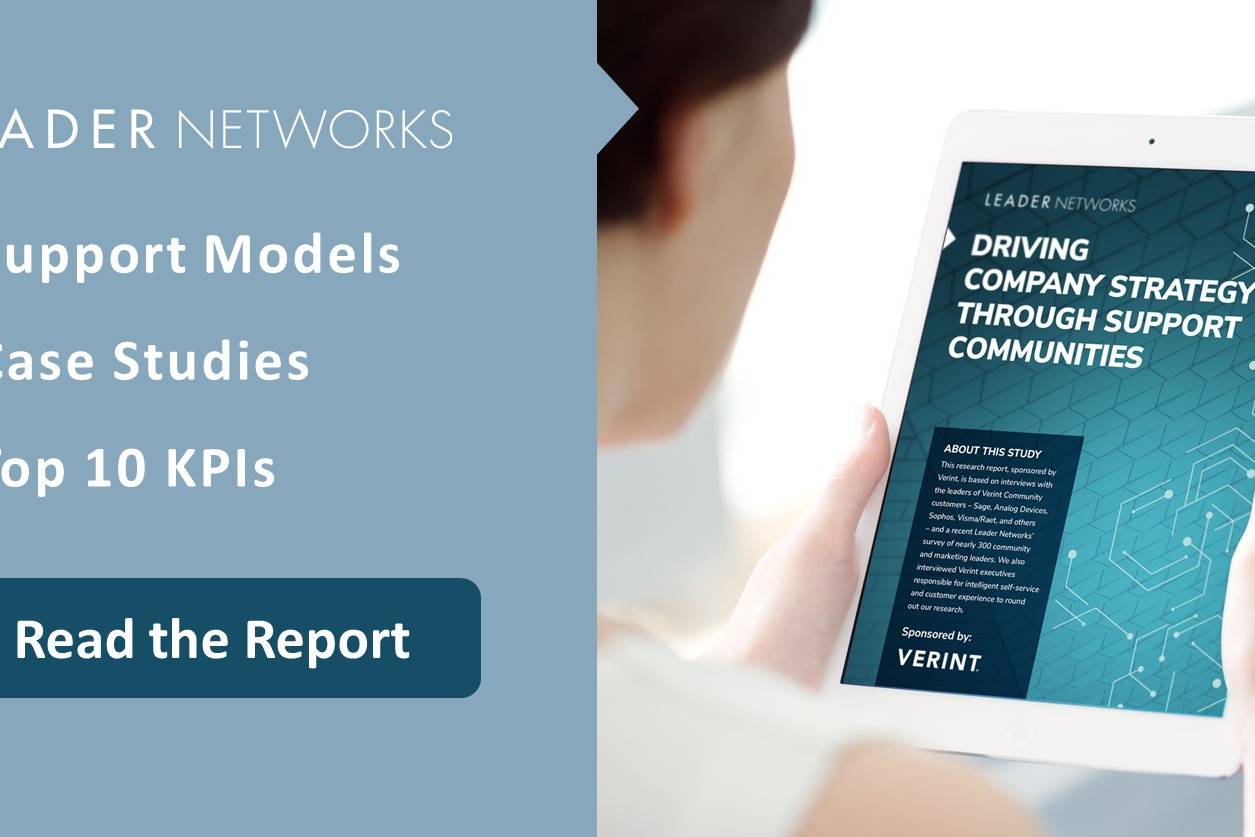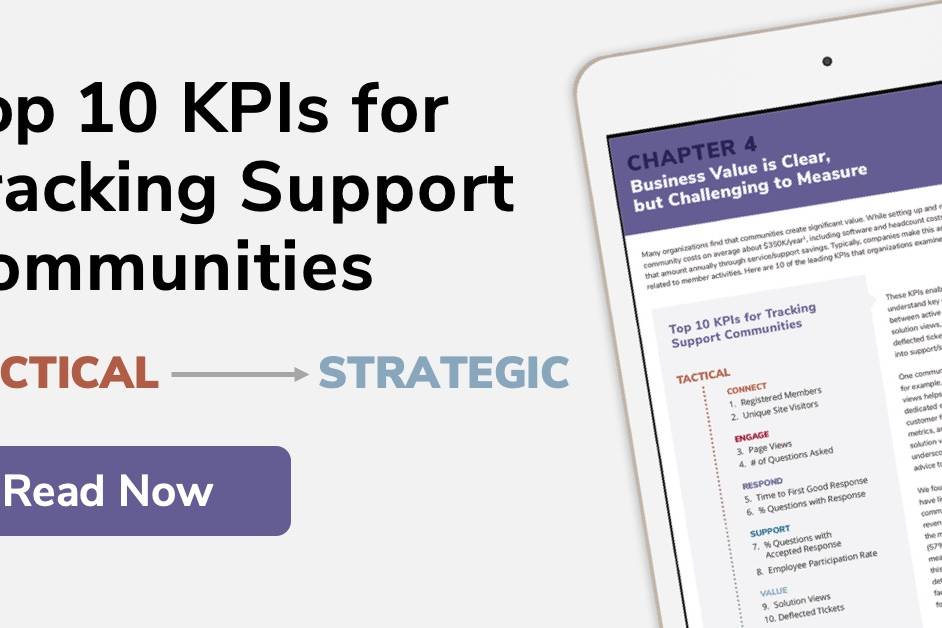Let’s start with this: “online community” doesn’t have a clear definition. Even before hashtags and Pinterest and Facebook pages, online users and cognoscenti alike have rarely agreed on what an online community really is. Never mind the debate over “what is the difference between a social network and an online community?”, although there are distinct differences. For example, an argument can be made that LinkedIn is a social network – it’s far too large to be considered an online community. At the same time, some of the higher-functioning sub-groups within LinkedIn could fall into the online-community-lite category.
While online communities proliferate among many progressive customer- or partner-focused organizations, just what constitutes an online community is still confusing. So when an organization’s spokesperson says: “Wow, we just launched an online community for our customers. It is a big deal!”, in one case they could be talking about a 6 – 12 month strategic project that included a business case, ROI metrics, a business requirements document, software selection and deployment and beta member planning effort complete with an executive sponsor, and in another, they just spent three days creating a product page on Facebook. The same words are used, but there’s a very sizable difference between the two. Keep those differences in mind when you set out to pitch an online community to your company, seek an executive sponsor, become an executive sponsor or secure the budget for an online community. These are fundamental issues which need to be understood before diving into the project.
What are some of the key questions to ask about an online initiative to understand if it can function as an online community for business?
– Can you set the participant permissions and control all the content?
– Do you have access to all the data gathered from participant interactions?
– Does it need to be “owned” by the company? For example, can the company control the platform? Can an outside entity close the site or make changes without your organization’s permission? Does another organization also have access to participant interaction data?
– Does it have a member directory and “real” information about the participants?
– If you invited the participants to an event, would you want them to co-mingle with your best customers?
– Is the main purpose to market and broadcast information or provide lead generation?
– Will members be connected and involved with each other over time? In other words, do the participants belong to a shared “something” or are they anonymous, largely passive spectators?
– Is there a shared purpose for convening online? For example, are there topics or issues which are explored on an ongoing basis.
– Is there a balance between content and conversation? Can a site that is primarily about content sharing be considered a community?
– Will this online initiative be extremely large (e.g. 1 million members) or extremely small (under 100)?
– How much effort is dedicated to it? Is it a side hobby or treated as a proper project?
– Is the anticipated ROI commensurate with the scope of the project (planning, budget, business case, executive sponsor)?
So here’s the Leader Networks definition of an online community for business:
An online community has a business plan, is designed to support at least 1-2 business needs, has an executive sponsor and dedicated staff, success measures are defined and typically takes place on an owned platform.
The purpose of the online interactions and relationships is the core determinant of what makes social exchanges online into an online community. Serving the needs of the individuals who participate, who convene online, is crucial. Those needs can be to facilitate learning about a topic, product, subject, trend or to enable peer-peer dialogue.
In addition, an online community means a dedicated web-based area that utilizes a purpose-built platform which enables the exchange of ideas and content via a suite of interactive features such as discussion forums, polls, content libraries, member directories and the like. When we talk about building online communities for business, we are referring to the full-featured kind and not the “I made a Facebook page – whoohooo – we have an online community” kind. On even the most basic level, your business returns are most likely going to be directly connected with the level of effort you put it – as will all things community related – you get what you give!
How does your company describe what is considered an online community? And, how do you differentiate social media marketing from online community?
Warning: Attempt to read property "base" on array in /home3/trusten9/public_html/leadernetworks/wp-content/plugins/wp-user-profile-avatar/shortcodes/wp-user-profile-avatar-shortcodes.php on line 665
Warning: Attempt to read property "base" on array in /home3/trusten9/public_html/leadernetworks/wp-content/plugins/wp-user-profile-avatar/shortcodes/wp-user-profile-avatar-shortcodes.php on line 665
Warning: Attempt to read property "base" on array in /home3/trusten9/public_html/leadernetworks/wp-content/plugins/wp-user-profile-avatar/shortcodes/wp-user-profile-avatar-shortcodes.php on line 665
Warning: Attempt to read property "base" on array in /home3/trusten9/public_html/leadernetworks/wp-content/plugins/wp-user-profile-avatar/shortcodes/wp-user-profile-avatar-shortcodes.php on line 665
Vanessa DiMauro
Internationally recognized independent thought leader on social business strategy and operations with a specialty in online community. I help organizations drive top line growth through innovative digital strategy design and thoughtful execution. I have successfully led 60+ strategic social business initiatives for the world's most influential organizations over my 20 years as a social business executive and serve on a number of boards. My award-winning track-record is fueled by passion, experience and research.
My work has been covered by leading publications such as the New York Times, the Wall Street Journal and CIO Magazine and was recently named a Social Marketing Master by Forbes. As a former Executive in Residence at Babson College, Olin School of Management, I am an engaging and informational educator and keynote speaker.
4 Comments
Add comment Cancel reply
This site uses Akismet to reduce spam. Learn how your comment data is processed.




[…] What Does Online Community Mean To Your Company? (leadernetworks.com) […]
[…] work was originally published on Vanessa's blog, Leader Networks and is reposted here with her […]
[…] work was originally published on Vanessa's blog, Leader Networks and is reposted here with her […]
[…] work was originally published on Vanessa's blog, Leader Networks and is reposted here with her […]